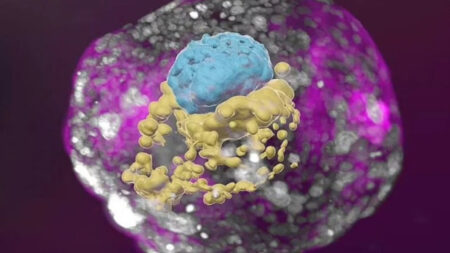McGill University has combined their knowledge in a durable biomaterial.
McGill University experts combine their chemistry, physics, biology, and engineering to create a biomaterial robust enough to heal the heart, muscles, and vocal cords, marking a huge step forward in regenerative medicine.
“People recuperating from heart disease frequently have a long and difficult road ahead of them. The continual movement tissues must tolerate while the heart beats make healing difficult. The same may be said of vocal cords. There was no injectable substance powerful enough for the task until now “Guangyu Bao, a PhD candidate at McGill University’s Department of Mechanical Engineering, agrees.
Professor Luc Mongeau and Assistant Professor Jianyu Li headed the team that created a novel injectable hydrogel for wound healing. A hydrogel is a form of biomaterial that allows cells to survive and develop in a controlled environment. The biomaterial produces a stable, porous structure once injected into the body, allowing living cells to grow or flow through to heal the afflicted organs.
“The results are encouraging, and we hope that one day the novel hydrogel will be utilised as an implant to restore the voice of persons with injured vocal cords, for example laryngeal cancer survivors,” explains Guangyu Bao.
McGill University’s Mechanical Engineering department:
Professor Luc Mongeau and Assistant Professor Jianyu Li headed the team that created a novel injectable hydrogel for wound healing. A hydrogel is a form of biomaterial that allows cells to survive and develop in a controlled environment. The biomaterial produces a stable, porous structure once injected into the body, allowing living cells to grow or flow through to heal the afflicted organs.
“The results are encouraging,” adds Guangyu Bao, “and we hope that one day the novel hydrogel will be utilised as an implant to restore the voice of persons with damaged vocal cords, such as laryngeal cancer survivors.”
The test details:
Scientists used a system designed to mimic the severe biomechanics of the human vocal cords to assess the durability of hydrogels. The unique biomaterial stayed intact after being vibrated 120 times per second for almost 6 million cycles, whereas other typical hydrogels broke and couldn’t handle the load.
“I was ecstatic to see everything perform flawlessly in the test.” There was no injectable hydrogel with both high porosity and toughness before this research. To address this issue, we’ve included a pore-forming polymer in our recipe. Guangyu Bao is a Chinese character.
About McGill University:
McGill University is Canada’s top-ranked medical doctorate university, founded in Montreal, Quebec, in 1821. McGill is frequently regarded as one of the best institutions in the country and throughout the world. It is a world-renowned university with research activity covering three campuses, 11 faculties, 13 professional schools, 300-degree programmes, and over 40,000 students, including over 10,200 graduate students.
McGill welcomes students from more than 150 countries, with foreign students accounting for 31% of the student body. Over half of McGill students claim a first language other than English, with French being the native tongue of over 19% of our students.
According to the researchers, the breakthrough also offers new possibilities for different uses, such as medication delivery, tissue editing, and the production of model tissues for drug testing. The team is also considering using hydrogel technology to manufacture COVID-19 drug test lungs.
“In the design of novel biomaterials with unparalleled performance, our study stresses the synergistic impacts of material science, mechanical engineering, and biotechnology.” We’re excited to put these into practice in clinics.” According to Professor Jianyu Li, Chair of the Canadian Research Committee on Biomaterials and Musculoskeletal Health.












